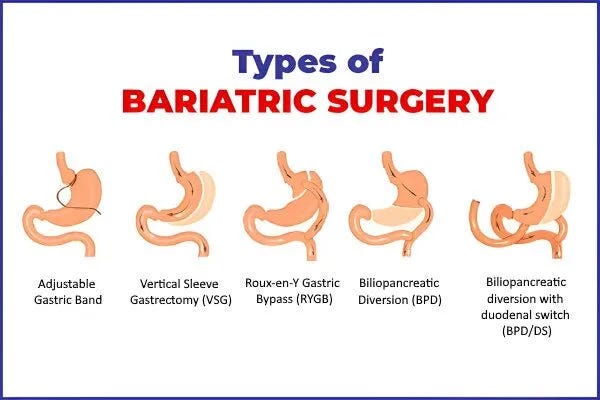Weighing the Options: Pros and Cons of Bariatric Surgery
Written by Azzy Xiang
For people struggling with severe obesity and its associated health risks, bariatric surgery can be a life-changing option. However, it's crucial to understand both the potential benefits and drawbacks before making such a significant decision. In addition, other methods of weight loss should be considered first, such as increasing physical activity and refining one's diet. If no other methods of weight loss work and one’s case of obesity is too severe, then it would be useful to look into bariatric surgery, a series of surgical procedures to help manage obesity.
Let’s weigh the pros and cons here to get started.
Pros:
Significant Weight Loss: Bariatric surgery can lead to substantial and sustained weight loss, often exceeding what can be achieved through diet and exercise alone.
Improved Health: Weight loss through surgery can reduce the risk of developing or worsening conditions such as type 2 diabetes, heart disease, sleep apnea, and certain types of cancer that are associated with obesity.
Increased quality of Life: Weight loss, the primary objective of bariatric surgery, can increase energy levels and boost self-esteem, leading to a better overall quality of life.
Cons:
Major Surgery: Bariatric surgery is a complex procedure that requires a lengthy recovery period and carries inherent risks like infection, bleeding, and complications.
Lifestyle Changes: Maintaining long-term weight loss requires significant dietary changes, regular exercise, and ongoing follow-up care with medical professionals. Otherwise, you’ll have a risk of regaining weight and the surgery would have been for nothing!
Nutritional deficiencies: Ironically, bariatric surgery can lead to malabsorption of certain nutrients, requiring supplementation and careful monitoring.
High Cost: Bariatric surgery is a costly procedure, with ongoing expenses for follow-up care and potential complications.
To conclude, bariatric surgery should not be viewed as a quick fix; following healthy habits like exercising often and eating more balanced meals should always be looked at first because they cause the least detriment. It's a powerful tool for weight management but requires a committed lifestyle transformation and a strong support system. Consulting with a qualified surgeon and discussing your individual needs, risks, and benefits is essential before making any decisions.
Written by Azzy Xiang from MEDILOQUY


